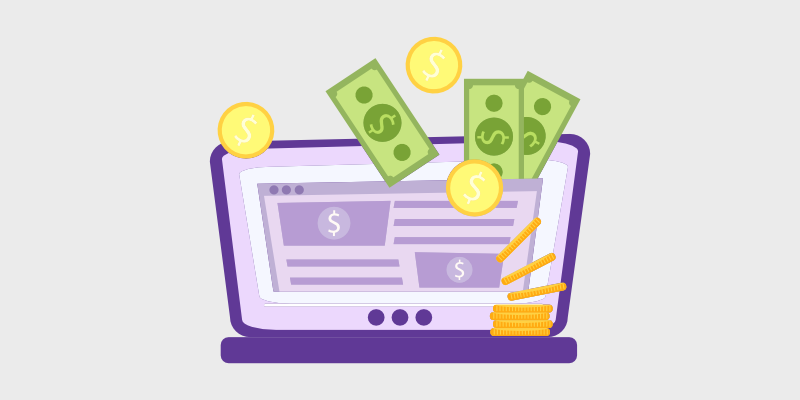How To Start Blogging For Beginners: Choosing the Right Platform
Blogging opens a world of possibilities for sharing your thoughts, ideas, and expertise. For those wondering how to start blogging for beginners, selecting the right platform is a crucial first step.
With numerous options available, it’s easy to feel overwhelmed by the choices. Each platform offers unique features that cater to different needs and preferences. Understanding these options is essential to ensure your blogging journey is smooth and fulfilling. This guide will walk you through the key factors to consider when choosing a blogging platform.
We strongly recommend that you check out our guide on how to take advantage of AI in today’s passive income economy.
Table of Contents
Understanding Your Blogging Goals
When embarking on your blogging journey, clarity about your goals is vital. Knowing your purpose will guide you in selecting the right platform.
Are you looking to share personal experiences, build a professional portfolio, or create a business site? Each goal influences the type of platform that would best suit your needs. For instance, if your primary aim is to monetize your content, you might need a platform that offers e-commerce capabilities or robust ad integration.
On the other hand, if you’re blogging as a hobby, a simple, user-friendly platform may be more appropriate. Taking the time to define your goals will provide direction as you explore your options.
Popular Blogging Platforms to Consider
Several blogging platforms cater to different levels of expertise and requirements. Understanding the main platforms can help you make an informed decision.
1. WordPress.org:
This self-hosted option is highly popular among bloggers. It offers flexibility and extensive customization options. You can choose from countless themes and plugins to enhance your blog’s functionality.
However, it requires a bit more technical knowledge, including managing your hosting and domain. If you are serious about blogging and plan to scale your site, WordPress.org is often the best choice.
2. WordPress.com:
This is a hosted version of WordPress, making it easier for beginners. You can start for free, but limitations exist on customization and monetization.
As you grow, you can upgrade to a paid plan for additional features. It’s an excellent way for beginners to dip their toes into blogging without upfront investment.
3. Blogger:
Owned by Google, Blogger is a straightforward and free option for beginners. It’s easy to set up and integrates well with other Google services.
However, customization options are limited compared to other platforms. If you’re looking for simplicity, this may be the right choice, but keep in mind its limitations.
4. Wix:
Wix is a user-friendly website builder that offers drag-and-drop functionality. This makes it easy to design a visually appealing blog without coding knowledge.
Wix provides a variety of templates, allowing you to create a unique look for your blog. However, it may not be as robust for blogging features as WordPress.
5. Squarespace:
Known for its stunning designs, Squarespace is perfect for bloggers focused on aesthetics. It offers various templates that are responsive and visually appealing.
While it is a paid platform, it provides an all-in-one solution, including hosting and domain registration. This makes it a great option for those who prioritize design and user experience.
6. Medium:
If your focus is solely on writing, Medium is a minimalist platform worth considering. It emphasizes content over design and has a built-in audience.
However, you have limited control over your branding and monetization options. This platform is ideal for writers who want to reach an established audience without the hassle of managing a full blog.
Evaluating Features and Flexibility
When choosing a blogging platform, evaluate the features that matter most to you. Each platform comes with unique attributes that cater to different needs.
Customization Options:
If you want to personalize your blog’s appearance, platforms like WordPress.org and Squarespace offer extensive customization options. You can choose themes, colors, fonts, and layouts that reflect your style.
However, if you prefer a ready-to-go design, platforms like Medium or Blogger offer simple, pre-designed layouts that require little effort to set up.
Ease of Use:
For beginners, ease of use is a significant consideration. Platforms like Wix and WordPress.com provide intuitive interfaces.
These platforms allow you to create and manage your blog with minimal technical skills. If you’re not tech-savvy, prioritize a platform that simplifies the blogging process.
Monetization Potential:
Consider how you plan to monetize your blog. Platforms like WordPress.org offer various monetization options, including ads, affiliate marketing, and e-commerce capabilities.
On the other hand, platforms like Blogger and Medium may limit your ability to earn income from your blog. If you intend to make money blogging, choose a platform that supports your monetization goals.
Budget Considerations
When learning how to start blogging for beginners, it’s essential to consider your budget. Different platforms come with various costs that can impact your decision.
Free vs. Paid Platforms:
Many platforms offer free plans, allowing you to start blogging without financial commitment. However, these free versions often come with limitations, such as restricted features, ads on your site, and lack of customization.
If you’re serious about blogging, investing in a paid plan can provide more flexibility and control over your blog. Consider the long-term benefits of investing in a paid platform.
Domain and Hosting Costs:
If you choose a self-hosted platform like WordPress.org, you will need to budget for domain registration and hosting. These costs can vary significantly based on the provider and the plan you choose.
Research various hosting providers to find one that fits your needs and budget. Investing in reliable hosting is crucial to ensure your blog runs smoothly.
Understanding Your Technical Skills
Your technical skills will also play a significant role in choosing the right blogging platform. Different platforms require varying levels of technical expertise.
Beginner-Friendly Platforms:
If you’re new to blogging and lack technical skills, opt for beginner-friendly platforms like WordPress.com, Blogger, or Wix.
These platforms provide intuitive interfaces and guides to help you get started without overwhelming you with technical jargon.
Advanced Options for Experienced Users:
If you have some technical knowledge or are willing to learn, platforms like WordPress.org offer more advanced features and customization options.
While they require more effort to set up, they provide greater control over your blog’s functionality and design.
The Importance of Support and Community
Having access to support and a community can make your blogging journey smoother. When considering how to start blogging for beginners, look into the resources available on each platform.
Official Support Channels:
Platforms like WordPress.org and Squarespace offer official support channels, including documentation, forums, and customer service.
Having access to these resources can be invaluable as you navigate challenges or learn how to use specific features.
Community Support:
In addition to official support, a strong community can provide tips, advice, and encouragement. Look for platforms with active user communities where you can connect with other bloggers.
Engaging with fellow bloggers can provide inspiration and solutions to common problems you may face.
SEO Capabilities
Search engine optimization (SEO) is crucial for driving traffic to your blog. When learning how to start blogging for beginners, consider the SEO capabilities of the platform you choose.
SEO Tools and Plugins:
Platforms like WordPress.org offer various SEO plugins, such as Yoast SEO, which help optimize your content for search engines.
These tools provide guidance on keyword usage, readability, and other factors that contribute to better search rankings.
Built-In SEO Features:
Other platforms, like Wix and Squarespace, offer built-in SEO features that simplify the optimization process.
Consider your comfort level with SEO and whether you want a platform that assists you in this area or one that offers advanced tools for optimization.
Analyzing Long-Term Growth Potential
As you choose a blogging platform, think about its long-term growth potential. Your needs may evolve over time, so it’s essential to select a platform that can grow with you.
Scalability Options:
Platforms like WordPress.org are highly scalable, allowing you to add features and functionality as your blog grows.
If you plan to expand your blog into a business, consider a platform that supports e-commerce or membership sites.
Transitioning Between Platforms:
If you start with a more basic platform like Blogger or Medium, transitioning to a more robust platform later may be challenging.
Consider how easy it is to migrate your content and branding if you decide to switch platforms down the line.
Conclusion
Choosing the right platform is a fundamental step when learning how to start blogging for beginners. Your blogging journey begins with understanding your goals, evaluating your technical skills, and considering your budget.
With various platforms available, take the time to explore your options and choose one that aligns with your needs. Each platform offers unique features and capabilities that can shape your blogging experience.
By making an informed choice, you set yourself up for success in your blogging journey. Happy blogging!

We strongly recommend that you check out our guide on how to take advantage of AI in today’s passive income economy.




